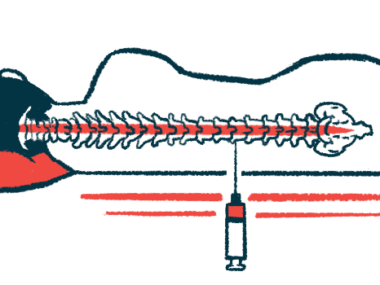My Period Reminds Me of the Inevitability of Disease Progression
Written by |

Once every few weeks, I’m reminded of my own mortality.
A lot of folks dread their period. It’s a definitively unpleasant time between the cramps and the blood and the hormonal mood swings that evoke a hangry toddler. But it’s not the period that I dread. It’s the days — sometimes weeks — preceding it.
I am cursed with an irregular cycle. I’ve gone months without having my period, to the surprise of confounded doctors and jealous nurses. But the downside to playing at menstrual freedom is that I never know when I’m about to start my period. It is, like most things in my life, a mystery.
My periods are usually heralded by fatigue. But I can’t differentiate “period fatigue” from “regular fatigue” so I usually spend the first few days of my cycle in a state of sheer apprehension. I feel like I’m dying, bombarded by fears of irreversible disease progression. Am I doomed to feeling like a slug for the rest of my life?
SMA has taken so much from me. The thought of losing what little I have left is terrifying.
To be fair, the fears aren’t unfounded. I’ve lost a lot of abilities over the past couple of years. That gut punch of a proverb — “if you don’t use it, you lose it” — is, to my great annoyance, a truism. I’ve never been particularly active, but pre-COVID, I was at least able to chase my caregiver’s daughter through Target. These days, my exercise regimen starts and ends with waddling around the family room like a living blanket burrito.
The days leading up to my period are exhausting. I’m always tired, but period fatigue is a special kind of tired. I can barely move my arms. Sometimes I slur my words. All I want to do is crawl into bed and watch the final season of “Schitt’s Creek.” And, because I’m me, I’m usually wrestling with my ever-present fear of becoming a vegetable.
The rational part of my brain recognizes that, by virtue of the times, neuromuscular diseases like SMA are no longer as debilitating as they once were. Treatments are available. Science and rehabilitative medicine have come so far, and technology has made the world accessible to folks like me. Driving my wheelchair is harder than it used to be, but I know there are alternatives to my joystick and controller, should the need arise. If, God forbid, I lose control of my hands, I know that eye-gaze trackers will preserve my ability to write. It won’t be the end of the world.
But the emotional part of my brain is swimming in hormones. I don’t just feel like I’m dying; I feel like this disease is robbing me of myself, chipping away at my body until I’m nothing but a chunk of meat and knobby bone.
The therapist in me recognizes this as small “T” trauma. The hangry toddler that visits me once every few weeks wants to throw a tantrum. She wants to scream and cry and pound her little fists, because she is having capital “E” emotions and no one is giving her the time of day.
Even the security of treatment, something that will supposedly help with disease progression, feels out of reach. I still haven’t heard back from the clinic about scheduling another appointment with another neurologist about starting Evrysdi (risdiplam).
Two to three days into this rollercoaster of emotions, I realize with startling clarity that my period is coming. It all makes sense: the hopelessness, the mind-numbing exhaustion, the fear of succumbing to whatever SMA has in store for me. Usually around this time I look at my dad and say, “It’s my period.”
“I guess it is about that time,” he replies, because there is no such thing as privacy in the Albers household.
It’s a magical thing, that moment of realization. The world shifts. I’m not dying! I’m just exchanging blows with my frustratingly fragile body! The hangry toddler exhales in relief because tantrums are time-consuming and she has a book to finish, thank you very much.
The fatigue subsides after a day or two, followed by headaches, blood, so on and so forth. I’m a new woman — literally and figuratively. A new day has dawned, complete with limitless energy and renewed motivation. I am unstoppable. The world is my oyster.
Four weeks later, I’m staring at my bedroom ceiling, cursing my body for suddenly resembling a limp noodle. And so the cycle begins again.
***
Note: SMA News Today is strictly a news and information website about the disease. It does not provide medical advice, diagnosis, or treatment. This content is not intended to be a substitute for professional medical advice, diagnosis, or treatment. Always seek the advice of your physician or other qualified health provider with any questions you may have regarding a medical condition. Never disregard professional medical advice or delay in seeking it because of something you have read on this website. The opinions expressed in this column are not those of SMA News Today, or its parent company, Bionews, and are intended to spark discussion about issues pertaining to spinal muscular atrophy.




Leave a comment
Fill in the required fields to post. Your email address will not be published.